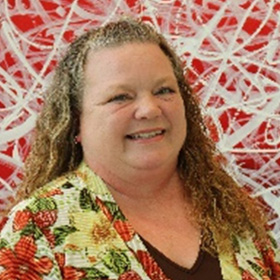by Gina Brown •
Be it Christmas, Kwanzaa, Hanukkah, or whatever your family holiday tradition is, your first year as a kinship care provider may not feel very traditional. Please have trust it can get better. To help, here are a few pointers that apply to almost any holiday scenario you might face as a relative caregiver.
Be Honest. Be honest with the youth, honest with the youth’s parents, and honest with extended family. If you have tried to keep the youth’s new living arrangement a secret from some family members, it may be time to let the “Grinch out of the bag,” so to speak. Do this before Thanksgiving, if possible! For example, your third cousin—who has never really been invited to the festivities—may show up. Is the middle of family dinner the right time to hear their opinions?
Ask youth how they really feel about the holiday. Ask multiple times, way in advance!
You don’t have to go overboard. Really, you don’t! Holidays are great, but the youth and your last nerve are too important to upset over a tradition. If the way you ALWAYS did a holiday activity no longer fits with your new family dynamics, try a new and different approach. You can always revisit things again next year. There shouldn’t be anything carved in stone—things can shift to benefit how the youth feels and how you feel.
Be prepared to fall back and punt. Just like all the football games on TV Thanksgiving Day, your backup plan will need its own backup plan. This isn’t so much for the younger kids, but when dealing with pre-teens and teenagers, the holidays can be worse than any other time. One minute they’re fine—everything is great and agreeable. The next, you’re dealing with a meltdown. Take it in stride, attend to their needs, and give yourself a moment for self-care.
No one wants a side of grief or anxiety with their Kwanzaa sweet potatoes, or a side of guilt with the Christmas turkey. Keep in mind those unwanted, emotionally stressful casseroles may show up on your holiday menu. If they do, don’t pass them around. Instead, take them back to the kitchen, smile, and bring out dessert.
Communication is not overrated. If they are old enough, talk to your youth. Ask them to share how they really feel about the holiday. Ask multiple times, way in advance. If needed, you can also let them know that it is everyone’s holiday and though you’ll try your best, their every request might not work out perfect.
HELP is a four-letter word. But unlike some other four-letter words, you should use this one often: ask for help not just during the holidays, but all year long. You are not WonderKin or SuperRelative, even though you do wonderful and super things every single day.
Ask for help. Ask your youth’s child welfare worker and GAL if there are nonprofits in your county that can assist with holiday gifts for youth in care. (Have a list ready!) Ask other family members to help with holiday planning. Use your support network. If you don’t have one, get one. Give yourself the gift of self-care. Give yourself permission to take a break.
Gina Brown, a kinship caregiver, serves on NC’s Child Welfare Family Advisory Council.
NC’s Child Welfare Family Advisory Council
The NC Division of Social Services now has a state-level council comprised of six parents who have received child protective services, one foster parent, one adoptive parent, two kinship caregivers, and two foster care alumni. To learn more, visit https://bit.ly/2lWRxCg.


